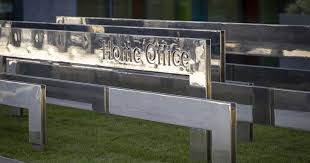New findings point to a ‘growing culture of disbelief’ within government towards victims of trafficking
The UK’s immigration reforms are harming victims of modern slavery and helping traffickers thrive, according to new research by a leading anti-slavery charity.
The report, published today by Unseen, found that the government’s “growing culture of disbelief” in victims has made it much harder for them to be identified, helped and protected.
It points to a recent increase in the level of evidence required for people to prove they have been trafficked, as well as stricter rules around what qualifies them for support.
The result is that many victims do not want to engage with authorities, the report says, while traffickers are incentivised to continue and even expand.
“Our evidence shows that when survivors are met with suspicion rather than belief, they disappear from view and criminal gangs are free to operate,” said Unseen’s CEO Andrew Wallis.
We have previously reported on the ways employers use their visa powers to prevent workers from speaking out on exploitation, abuse and even rape.
Last year, the home secretary Shabana Mahmood said asylum seekers were abusing modern slavery support systems to avoid deportation from the UK.
The report says there is no evidence of this being widespread. In fact, thousands of victims may have been denied support because of the evidence now required, and at an early stage in the process, in order to be eligible.
The flaws in the system are reflected by the fact that more than 50% of refusals that went on to be reconsidered were overturned, according to Home Office data. Or to put it another way, when officials are forced to take a closer look, more often than not they realise they’ve got it wrong.
One person who described their experience of trying to get support told Unseen they do not trust the authorities.
“They make you suffer,” the person said. “They want to break you and see if you crack … They make you go through the mental stress before they assist you.”
New rules also mean that victims can be refused protection if they have been sentenced to at least 12 months in prison – or are believed to be lying about their experience.
People told Unseen of instances where survivors’ accounts were doubted or rejected because they described new trafficking trends that authorities weren’t yet aware of.
“There are certainly occasions where I’ve originally gone, ‘No, this can’t be true’ only to then see something months down, [a] year down the line, and think, ‘Oh, wait a minute. I made that decision a year ago saying this person’s clearly making it up when actually I’ve now seen evidence that what they’re saying – it may have actually happened,’” said a respondent to the research who worked in law enforcement.
The report identified a “systemic bias” against some nationalities, especially Albanians, with officials casting more doubt over a survivor’s credibility because of where they are from. It said this further entrenched distrust among the groups in question and "allows bias to creep into the system".
The research examined the impact of modern slavery provisions in the Nationality and Borders Act 2022, Illegal Migration Act 2023, and Safety of Rwanda Act 2024. While some of the most damaging aspects of the Illegal Migration Act and Safety of Rwanda Act, such as the denial of protection for those who enter the UK through irregular means, were repealed last year, many harmful provisions remain.
The report’s recommendations include separating modern slavery from immigration policy and restoring early access to support for victims.
If you are a victim of modern slavery and have been unfairly denied protection we would like to hear from you. You can email the reporter on this story on This email address is being protected from spambots. You need JavaScript enabled to view it. The Bureau of investigative Journalism






